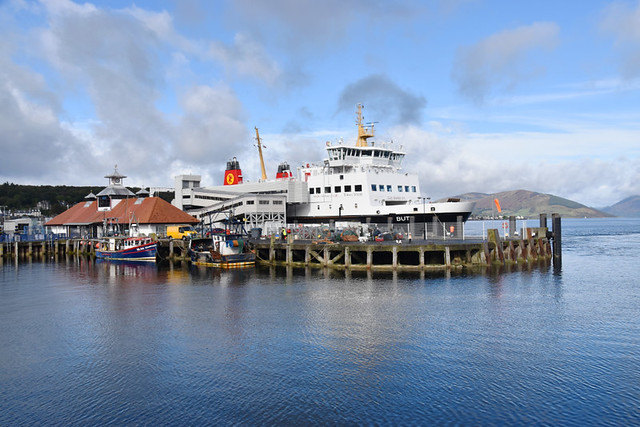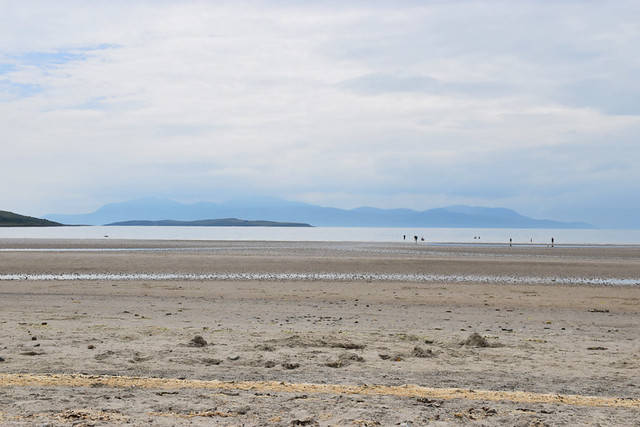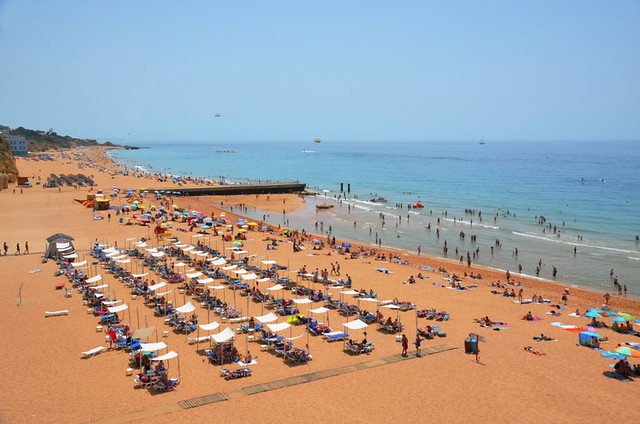Generally, the travel sections of many of the UK’s newspapers are languishing in the doldrums. I could bore you with any number of reasons why I believe this – too often a lack of innovation or desire for change from those at the top; a lack of real knowledge gleaned the hard way; the need to bring in money by having travel articles directly linked to selling products (i.e. flights and hotels) overriding quality; an industry which has ignored the rise and impact of social media, and so on. With the last one I don’t mean like having a presence on Facebook, Twitter, Instagram et al. There’s far more to embracing changes in the online world than just publishing an article or posting a photo on some social media platform.
A couple of examples over the last week highlighted some of the problems travel writing faces in a world where anyone who’s connected to the internet can pass themselves off as an expert.

The first was an article about the place I grew up, Bute. It was written for The Sun by a friend, Robin McKelvie, and was a positive piece about an island which has not been as successful as other Scottish islands in adjusting to make itself attractive to travellers who want more than a poke of fish and chips and 99s from a scenic, seaside setting. Ironically, the pandemic has been good for Bute, with a rise in staycations meaning the island is seeing more visitors than it has done for many, many years. It was a good article, presenting the island in a very attractive light and showcasing some of the best Bute has to offer. Robin shared a copy with me, and then I saw it turn up on the Isle of Bute Facebook group where some members picked up on a headline which referred to the island’s ’empty beaches’. Instead of being pleased about the exposure, some took exception; sneering about the reference to empty beaches as though it was a slight rather than a positive.
“Definitely no empty beaches over the past few weeks!” one commented. “Hardly!! Depends what they compare it with …” was another. How about beaches in other parts of Scotland as well as in both popular and off the beaten track locations around the world? I’m willing to bet Robin has wiggled his toes in sand in a hell of a lot more locations than the person who left that comment.
As for the scoffing at the very suggestion there were empty beaches on Bute, I’m sure there are occasions when the beaches are unusually busy, but over the course of a year the default state of Bute’s beaches is … empty. Incidentally, at the start of July we spent a Saturday afternoon on the sands of the most popular beach on the island – well within the ‘few weeks’ period one commenter referred to. Here’s a photo. Make up your own mind.

What annoyed me about the comments was the amount of negative ones there were about an article which was promoting the island. Why would people criticise something that was a boost for the place they live in? You simply just can’t help some folk.
But that’s social media. It can often be a platform for those who get a kick out of being destructive. I’ve seen this time and time again over recent years. As a result, most publications have turned off the comments section on travel articles. Who can blame them? But there’s a converse side to this picture. As well as shutting down those who take pleasure in being objectionable, it can serve another purpose.

Over a decade ago, as social media was changing the writing landscape as we knew it, I remember welcoming the transparency it brought, especially after reading one too many rehashes of exactly the same travel article. No longer would the laziest writers be able to re-arrange the same limited handful of experiences and pass them off to editors as being fresh. With publications going online, we were all able to compare and contrast, and those travel experiences which had been wrung out over and over again till they were long past their sell-by date, stood out like a sore thumb.
You had to know your stuff to escape being ‘found out’. Tenuous angles in travel articles might fool an editor, but they didn’t cut the mustard with readers who knew destinations as well as, or better than, the person penning the article. In my book, Camel Spit & Cork Trees, I quote an example of how a reader’s comment on an article about gastronomy in the Alentejo region of Portugal proved more useful than anything in the article itself. The reason for this was the author had taken an approach that distorted reality completely out of shape. Constructive comments, such as the one in that particular example should have acted as a measure of quality control, resulting in publications adjusting their game to ensure writers really knew their stuff, or knew more than the average traveller at least.
But then, more and more people took to social media, and the insightful comments were drowned out by a rabble who simply liked to complain and criticise. So comments sections were turned off, and people with something sensible to add were silenced alongside the majority who didn’t. In essence, the disruptive boys in the class ruined it for everyone, as they so often do.
What this also served to do was to turn back time.

Last week I read another travel article about a place I’m very familiar with. It was a lazy piece, rehashing an angle that was out of date at least five years ago, as well as rehashing content I’d read more than a decade ago. There was no attempt at coming up with fresh and original material, it was what I refer to as a mercenary piece. A connected article about the same destination included huge chunks of the same information; basically it was a cut and paste job, and this was in one of the UK’s leading newspapers.
Instead of learning from the constructive aspects of reader comments, and using them to mould a new travel-writing model that provides useful and insightful material for today’s savvy and well-informed traveller, many publications have raised their drawbridges and basically put fingers in their ears. In doing so, they’ve returned to the days when travel articles could be published in a critique-less void. As a result, quality has been eroded. This isn’t always the case, there are plenty of excellent, ethical travel writers out there producing the sort of material I enjoy reading. But far too many times I find myself left unmoved, except for feeling cheated, by articles that could have been produced by writers who never left the desk from which they’d penned them.
It seems to me that heading backwards when social media, and user participation, continues to march forward can only have one depressingly inevitable outcome.




Loved the article—it was truly inspiring. Thanks a ton for sharing those quotes!
I’m just wondering how you got such time to write this post while traveling.